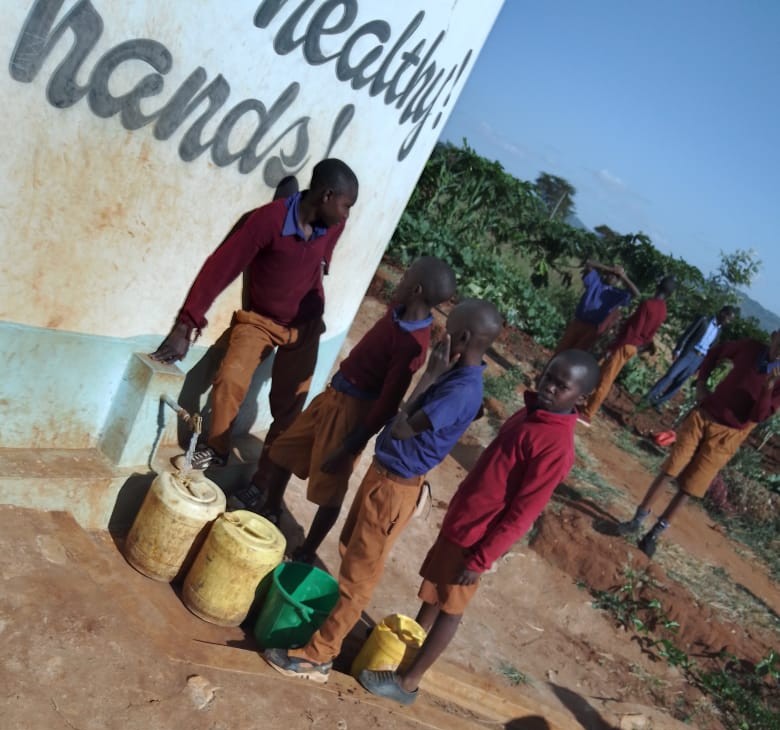View some water projects using Mobi-Water
Mobi-Water for Schools Project
Background Information
In many rural areas of Kenya, schools lack reliable access to clean water due to the absence of piped infrastructure. Instead, they depend heavily on rainwater harvested and stored in large tanks. When these tanks run dry or are damaged, entire schools can go days without water — disrupting learning, hygiene, and daily routines for students and staff.
The Water for Schools Project was launched to solve this challenge by installing smart monitoring devices on school water tanks. These systems provide real-time data on water levels, allowing schools, NGOs, and local governments to detect shortages early, respond faster, and prevent prolonged outages.
Initially piloted in collaboration with the Africa Sand Dam Foundation and supported by the Royal Academy of Engineering (UK), the project has since expanded to 129 schools across 6 counties, positively impacting over 13,900 students. By improving water visibility and enabling better planning, the project helps ensure that water remains available where it matters most — in the hands of students.
Description: Monitoring Water Availability in Rural Public Schools
Installation Location: 6 Counties across Kenya
Project Outcomes
-
Fewer days without water
-
Faster support responses
-
Improved hygiene practices
-
Reduced absenteeism, especially among girls
-
Better coordination between school administrators and support agencies






Monitoring Community Waterpoints
Description : Monitoring Water Consistency in Africa’s Largest Informal Settlement
Devices Installed: Smart Tank Level Sensors
Description: We installed 40 Tank sensors in Community Water and Sanitation Points in Kibera, Nairobi (Africa’s Largest Informal Settlement) to track water availability and consistency.
Upon installation, The Water Points achieved 30% increased water availability as the operators accessed real-time Water Availability information and SMS Alarms to notify them when the Kiosks were running Low on Water.
Funded by Aqua for All, Project Partner:- Umande Trust





